From Colombia and Renshaw to a new addition: Cees Bol as a crucial factor in the 'Cavendish-35' project
CyclingSaturday, 20 April 2024 at 11:17
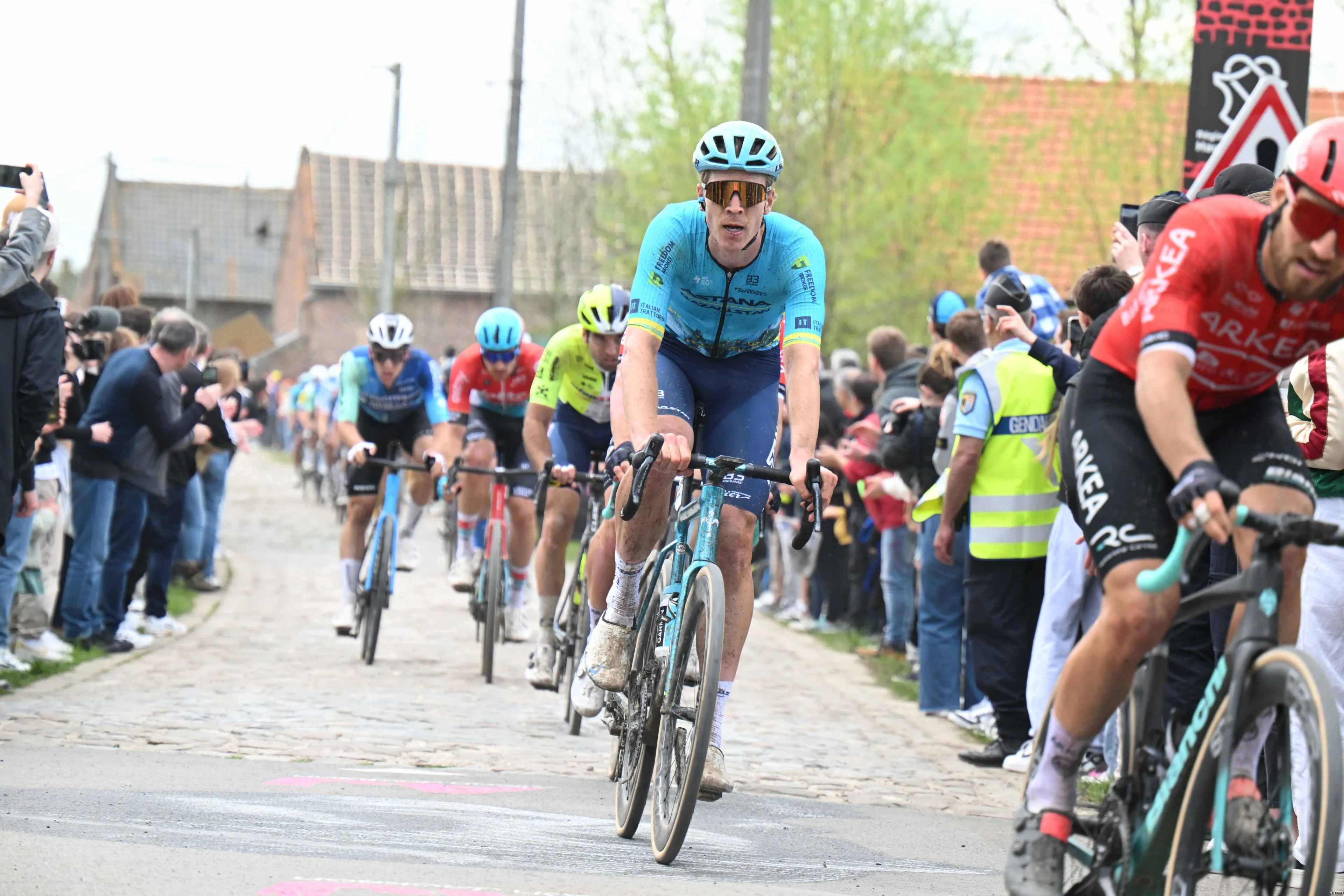
He was sidelined for the past few weeks due to illness and the lingering effects of Pfeiffer's Disease, but Mark Cavendish is set to resume his journey to the Tour de France on Sunday with the Tour of Turkey. The British rider from Astana Qazaqstan will be accompanied by lead-out man Davide Ballerini, albeit without his final two teammates, Michael Mørkøv and Cees Bol. IDLProCycling.com had an extensive conversation with Bol, in a year when everything at Astana revolves around securing Tour stage victory number 35...
Bol is now in his second year with Astana, and it's also his second year riding alongside Cavendish. The 38-year-old Briton was supposed to retire from cycling a while ago, but due to a crash that forced him out of the 2023 Tour de France, he decided to extend his career for another year. Cavendish is eager to clinch one more Tour stage win, which would mark his record-breaking 35th victory, surpassing Eddy Merckx. Who wouldn't want that?
In pursuit of this goal, Astana made significant moves last winter. While Bol had been Cavendish's tandem partner in 2023, Ballerini and Mørkøv were brought in for the 2024 season. Additionally, Max Kanter joined the team. On paper, it's an impressive sprint train, which was also given the opportunity and resources to train together in Colombia in February. Cavendish went on to win a stage there in the Tour of Colombia.
Bol plans to be part of an impressive sprint train at Astana
For Bol, this marks a new chapter, as the 28-year-old Dutchman spent his years with the current DSM-Firmenich PostNL team and last year with Astana mainly as a free rider. "It was my first time in Colombia, which was a fantastic experience. We had a successful training camp, and the special race was a fitting conclusion to a productive winter. Colombia is a different world, including its culture. However, since we were there for a training camp, the routine of eating, sleeping, and training remained the same," he shared with IDLProCycling.com.
The altitude training in Colombia also proved beneficial for Bol. "During the first two weeks, I had to acclimatize to the altitude, but after that, I adapted quite well. However, it took me some time to readjust once I returned home. I had hoped to feel good right away, but that wasn't the case. I'm not sure what caused it, but my body seemed a bit off after spending such a long time at altitude. It's common to struggle when transitioning back to sea level. Now that I've regained my rhythm, things are going well, but those first two weeks after returning home were challenging."
Cavendish's victory in South America provided a morale boost. "While it's one thing to assemble a sprint train on paper, putting it into practice requires some adjustments. Our performance in Colombia went smoothly, with one stage win out of the two sprint opportunities, along with solid lead-out work. We collaborated effectively there, and I didn't race with Mark again until the Tirreno. Unfortunately, we encountered bad luck with a flat tire in the first stage, and the subsequent stages proved to be too demanding for him. It was disappointing, but it doesn't alter our preparations for the Tour. We're heading in the right direction. While it would have been ideal to achieve consistent results in the Tirreno as well, there's no need to panic. The 2023 season was a good example that with Cavendish, we have someone who performs at the required level when it counts."
Read more below the photo!
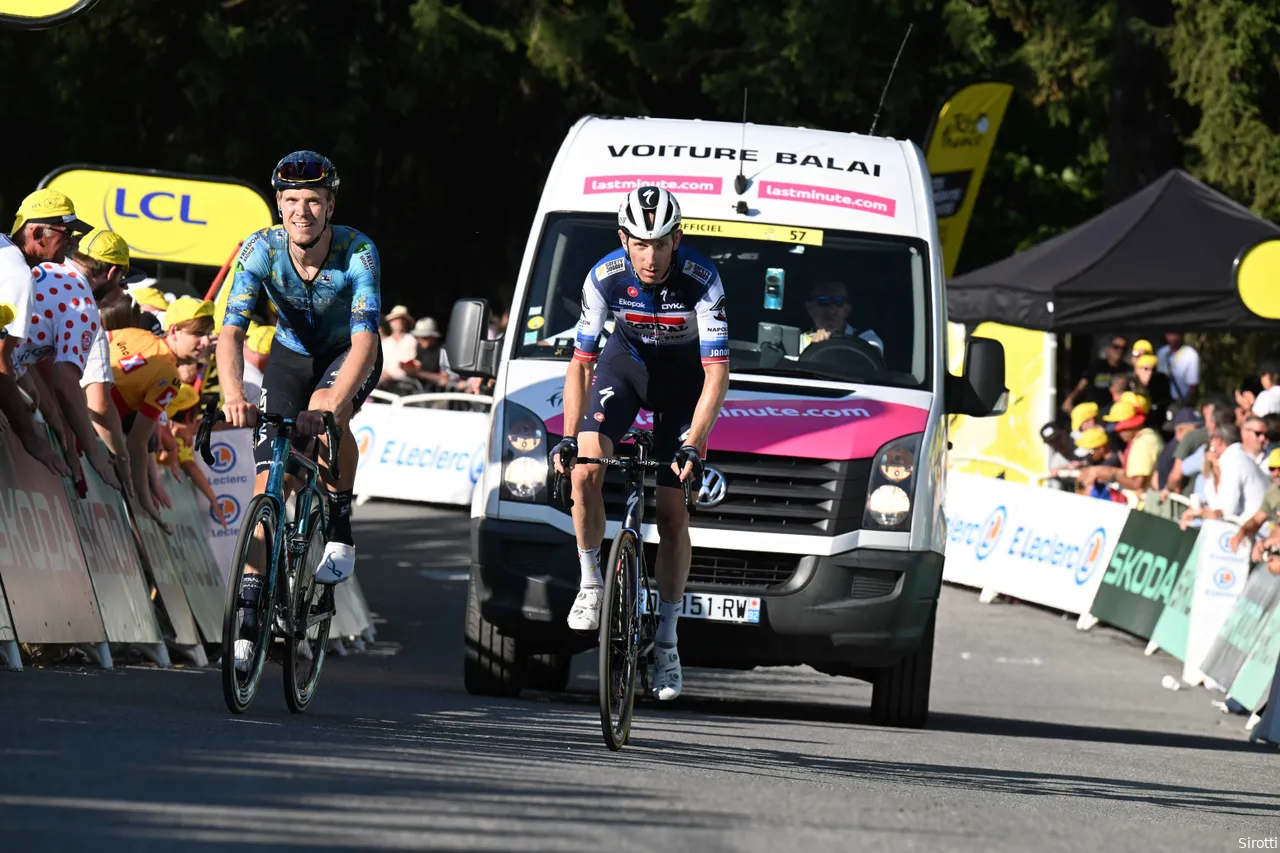
Bol, at last year's Tour alongside Mørkøv, now his teammate...
Cees Bol in another wagon, but at the same time
Nevertheless, there must have been a hint of panic when Cavendish fell ill after the Tirreno. It's not ideal in the lead-up to the Tour, although the classic spring season was already a period for Bol to seize his own opportunities. "Maybe I'll have more chances; you saw that in the Tirreno as well. We went there with Cavendish, but then it turned out that there were two sprints that were a bit trickier. Those weren't for me this time, but perhaps later in the Tour de Suisse. Additionally, it's a major goal for me to be in peak form for the Tour and assist the team as much as possible."
After all, Alexandre Vinokourov didn't ask for funds from the Kazakhs for nothing. Results must be delivered, and Bol finds himself in a slightly different role in 2024. "Michael is now the last man. That was my role last year, but now I'm essentially doing the same job, positioned closer to the finish. Last year, with fewer wagons in the train, the priority was to keep Cavendish at the front rather than setting up a proper lead-out. That aspect remains unchanged for me, but now Michael is positioned behind me, providing the final speed and launching Mark for the sprint."
"We don't train very differently, mainly because the technical aspect of a sprint train is challenging to replicate in training," Bol elaborated. "That's something you refine through racing. In training, the focus is mainly on physical preparation, although this year we had the opportunity to train in Colombia, facilitated by the team. I feel like I'm still progressing. Returning from Colombia, I was in high spirits, so it was disappointing for me not to immediately showcase that form. However, I regained that feeling during the Tirreno."
Read more below the photo!
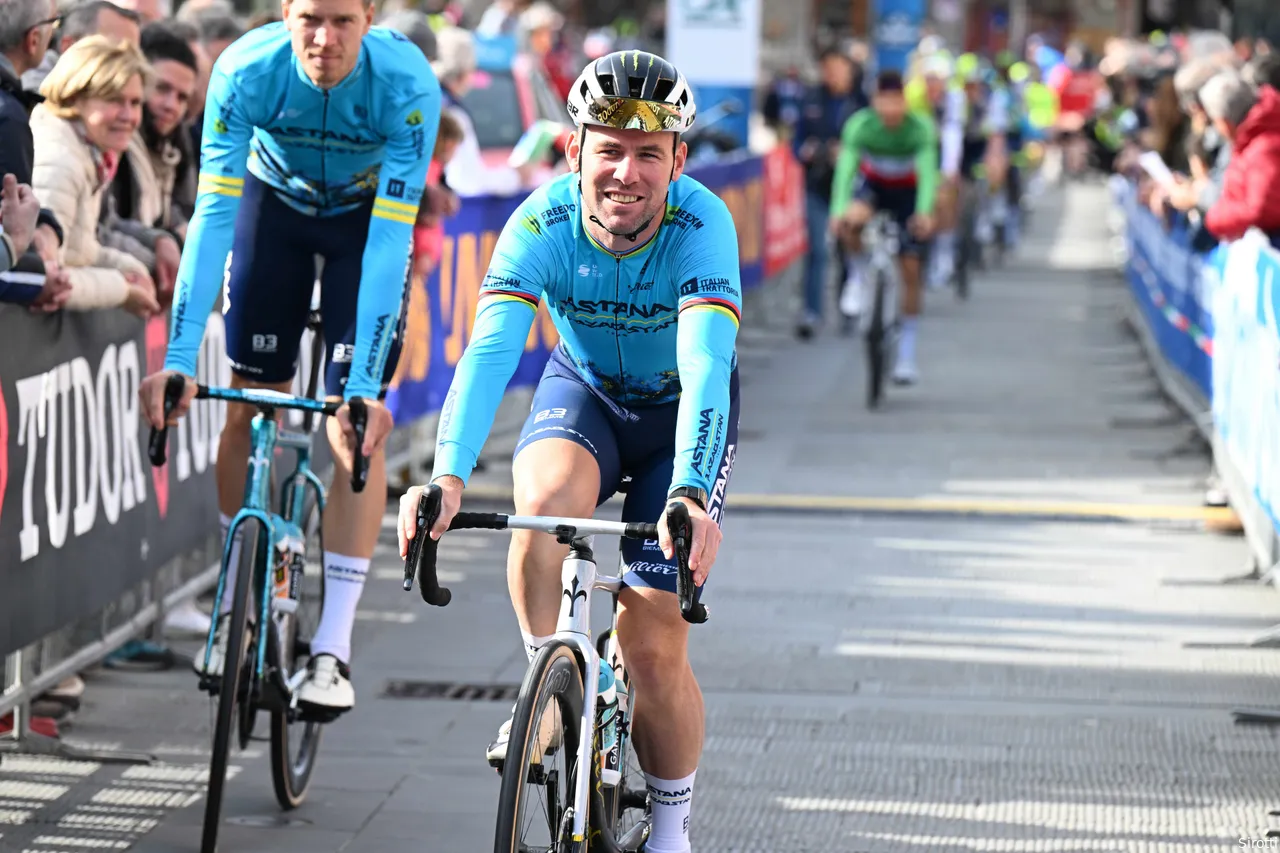
Cavendish and Bol
Astana in a dilemma: points or Cavendish?
It all sounds so straightforward, but Cavendish's absence in recent weeks had a third adverse consequence besides training setbacks leading into the Tour and missed sprint opportunities with his new team: points. Whereas Cavendish should have contributed to the UCI ranking in events like the Scheldeprijs, Astana often found themselves empty-handed during the spring. Bol, however, defended the team's honor admirably by finishing fourth in the Scheldeprijs.
Nonetheless, the Kazakh team is gradually paying attention to the UCI ranking. Only the top eighteen teams in the ranking after 2025 will secure a WorldTour license for the following three seasons. "While we aim for as many points as possible, we don't prioritize chasing points over other goals in our program. So, I wouldn't necessarily call it panic, but there's an awareness of its importance," Bol explains.
It's somewhat reassuring for Bol that he can still contribute to Astana's success even in races without Cavendish. The team's strong focus on sprints also facilitates this. "Occasionally, I still learn from Cavendish, but that's more due to the team's sprint-oriented setup, with additional support personnel like Mark Renshaw, who joined as a coach under Cavendish's influence. It's not as if Mark teaches me like a teacher, but I benefit from his experience. While my physical sprinting ability may not necessarily improve, I can maintain composure and make better decisions in the final kilometers. I haven't had many sprint opportunities this year. Being compared to someone like Danny van Poppel of Astana? That would be fantastic. Danny is performing excellently, so if I can match or surpass his achievements..."
IDL-productions

Eenkhoorn and Evenepoel get along well at Soudal Quick-Step: "Remco already sent a few messages"

Just 10 (!) days after concussion, Longo Borghini again a strong contender for the Ardennes: "I woke up in the hospital"

"Others get more respite"; is this the best van Aert? Question leads to candid answers at Visma | Lease a Bike

British talent joins van Aert and Evenepoel—but why did he ride with them? "Otherwise, I would have been toast"

Preview Brabantse Pijl 2025 | Evenepoel’s comeback, but also van Aert, Pidcock, a strong UAE team, and many more!
Latest Cycling News

Visma | LaB left empty-handed after French race due to flat tire at the 'worst possible moment'

Eenkhoorn and Evenepoel get along well at Soudal Quick-Step: "Remco already sent a few messages"

Just 10 (!) days after concussion, Longo Borghini again a strong contender for the Ardennes: "I woke up in the hospital"

"Others get more respite"; is this the best van Aert? Question leads to candid answers at Visma | Lease a Bike

British talent joins van Aert and Evenepoel—but why did he ride with them? "Otherwise, I would have been toast"
Popular Cycling News

Thomas on Pogacar vs. van der Poel in Paris-Roubaix: "In the Tour he will have a three-hour lead"

Flashbacks to Amstel Gold Race? Questions raised over mysterious bottle given to Pogacar in Roubaix: "Not everyone gets permission"

Bruyneel impressed by more than just van der Poel and Pogacar: "That rider will be a future star"

Preview Brabantse Pijl 2025 | Evenepoel’s comeback, but also van Aert, Pidcock, a strong UAE team, and many more!

After a somewhat forced exit from Alpecin-Deceuninck, Laurance brings van der Poel-like mindset to his new INEOS squad
Latest Comments
- Such negative comments that are truly inappropriate and actually ridiculous. He sounds like an old man, bitter that he can't race anymore. Why can't he just be gracious? Or just shut up. Instead of howling for attention, in such a rude manner. Must be Dementia creeping in. We are all living in the Now. Records are there, and some are being broken, some are unapproachable. If he doesn't like it, and it makes him sick, maybe he ought start watching some other sport. Don't want the old mans health to be upset.
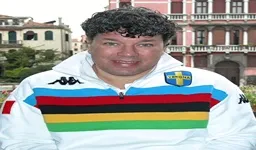 reemmo031-03-2025
reemmo031-03-2025 - Roger De Vlaeminck inspires me to create a new beer: "Bitter Old Twat Belgian".JackInhof31-03-2025
- Shoot, I'll ride it for 1/10 of what his pay for that day is😅Veganpotter30-03-2025
- What is this? The Lance Armstrong daily cheaters channel? I could care less about Johan and Lance the seven times cheater. Greg Lemond was right all along, Why don't you write about that instead of these two knuckleheads.velodrone28-03-2025
- Are we all doomed to hear from Lance Armstrong and Johan bruneel until the end of time? It's not enough the stain they left on cycling? Do we have to see that shadow forever?bigyakman26-03-2025
- I am not sure if it is the hardest to win. In Flanders and Roubaix well before the finish the Peleton will be decimated and the race will normally be won by the best rider of the day or maybe 2nd or 3rd in case of a mechanical or unlucky break especially in case of Roubaix. In San Remo just before the finish there will still be several riders in contention and they are hard to ditch. For the best riders it is a race hard to win since it is not so selective. But if you are not a top 5 rider but still a top 10 rider this race is your best change to win. You will see more Milan San remo Winners with only 1 monument win than any other monumentsJoostmehrtens19-03-2025
- "fap fap fap oh Lance oh oh OHHHHHHH" again. Does he pay you to dredge up people with nice things to say about him? He was an giant a$$hole to people. It is a fact. Whatever his contrition about the doping, he is unapologetic about being a giant a$$hole to people. (Why yes, I do only login to complain. *I* am however only a giant a$$hole to people who laud giant a$$holes.)ericjensenridesbikes25-02-2025
- Remco is still very young. And injuries can absolutely keep you from overdoing it and getting worse. The recent Remco accident didn't keep him from being able to ride a recumbent inside. Wout's knee is a different story thoughVeganpotter23-01-2025
- Van der Poel style is winning by a half a lap and leading the race from the end of the second lap.
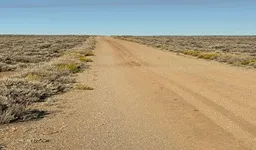 Barnes127420-01-2025
Barnes127420-01-2025 - If she thinks talent alone will put her there she will not see many podium finishes much less a GC finish.....work as a team utilizing tactics to consistently be at the top.Germanrazor10-01-2025